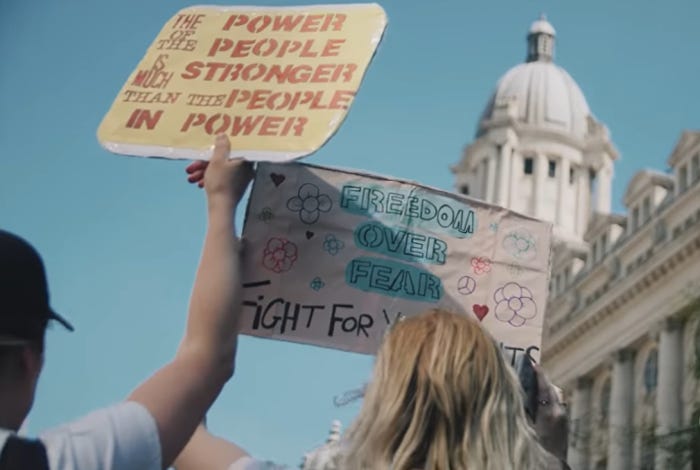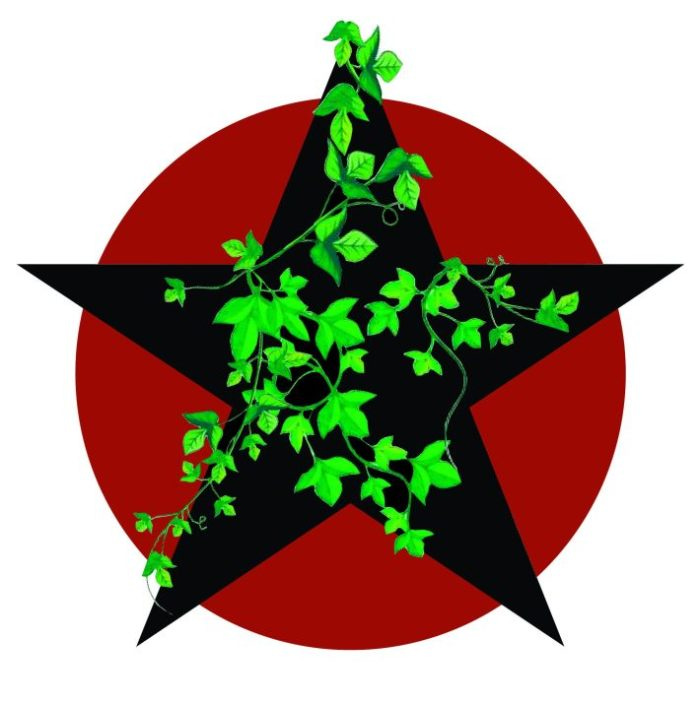[This is from my new book Our Quest for Freedom and other essays]
We have seen that there is a fundamental dislocation here, a deep gulf between the reality of contemporary society and the way in which we are meant to live.
In so many ways, the modern system is the exact opposite of what we really crave. It is the inversion of healthy and natural life.
It disempowers us, on every level, stifles and stunts us, forces us to repress our deepest feelings, intuitions and desires in order to fit into its gridwork of conformity and obedience.
It is the cage in which we are kept, it is the shackles with which we are bound, it is the gag that silences us.
There are many who lack the vitality and integrity to resist this and resign themselves to their incarceration.
But we are also many who refuse to be defeated. We hold on to our vision of something else outside of this grey gulag and refuse to let go.
A tension therefore emerges between the real circumstances in which we find ourselves and the place where we desire to be.
This tension – between what is and what could be – is our yearning.
This word nicely brings together the two ways in which we remember the archetype of authentic living which we carry within us.
As well as meaning a nostalgic, even melancholic, longing for something in the past, it also indicates a strong desire to do something in the future.
It is said to originate from the indo-european root word meaning ‘gut’ (along with ‘hernia’, for instance) and thus speaks of our gut feeling, our gut instinct, a voice that calls to us from our physical bodily being.
It provides us with a powerful internal motor to move on from our realising and remembering and to set off on the quest to reclaim our freedom.
Our Quest for Freedom and other essays can be downloaded for free here or purchased here.








Your explanation for 'yearning' as the tension between what is and what could be, aligns very closely with the purpose of my Peace Compass - an instrument to navigate where you want to be, from where you are now (assuming that there is always somewhere we want to move toward and away from). I actually refer to the distance between where you want to be (optimum) and where you are now as 'risk'. As a practical measure it represents the risk of failing to synchronise universal needs. I am trying to develop the Peace Compass as a way to measure the risk (or yearning), respond with a design for life based on choices that are more effective at moving toward optimum and be able to follow up to evaluate the change. This might seem unnecessary because it is obvious what is good and nourishing...but I don't think it is so obvious for many...hence the state of contemporary society.
Lovely little piece.
Perhaps the underlying truth in all this is very simply that human beings evolved over a million years (or however long one wishes to call it) in a state of complete nature - the human brain evolved to be best adapted to that environment. Thus, if you take that brain and put it in an unnatural environment then mental illness is the result. In the same way one sees zoo animals pacing back and forth. In a benevolent society, with a benevolent government, those social decision-makers would understand this and enable it. Given we have malevolent governments, this putting people into unnatural environments is deliberate, because of the mental illness it causes, the 'cognitive dissonance', not to mention the anti-education system, and that prevents people from being able to ask all the right questions and make all the right demands, and thus they are more easily socially controlled. They have effectively been put in cages, and are only 'allowed out' every now and then (perhaps to prevent revolution etc., which only seems to happen when the people feel they have nothing left to lose). It's the state of dependency, an intrinsic part of gaslighting, which needs to be overcome. Also, there is clearly a difference between what an individual (or small group/community) can do, and what a people as a larger whole can do (Dunbar's number etc.), and without that much greater collective action, the bad guys win. If everyone understood this yearning, and that everyone else has it, then we come nearer to collective action.